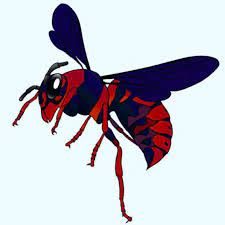Editorial by Elizabeth Temple, SU Professor of Piano Emerita

“POLITICALLY CORRECT”—what does this mean? The idea seems to be dividing our nation between “right” and “left,” “conservative” and “liberal.” Well, let’s take a look:
Perhaps for “politically correct” we need to substitute “kindness,” “sensibility for the feelings of other people,” “respect for the heritage, culture, gender of others,” or simply “good manners.” If ugly, rude (i.e., “politically incorrect”) terms are offensive to our acquaintances, neighbors, colleagues, employees, why use them? Avoiding such terms is not a form of politically correct censorship; rather, it is smart, thoughtful, respectful and gracious. It is not about politics—it’s about basic human empathy. Diminishing others with rude name-calling is a strategy symptomatic of weakness and profound ignorance.
There are words carrying various derogatory implications toward ethnicities and religions that are so commonly used they have almost become idiomatic as well. Yes, we need to understand the crude messages these words carry and avoid their use. The shorthand speech that refers to anyone’s race, culture, religion, personal traits, etc., in a negative manner that is insulting, hurtful, mocking or belittling is simply wrong—whatever we call it. Let’s stop thinking, ”politically correct” or “incorrect”—let’s really think about respect for each other’s feelings—the basic respect to which we are all entitled.
The Welsh writer Dylan Thomas said, “We are all colored something” and, in fact, we all have melanin in our skin (except albinos, who exist in EVERY race), and we all inherit a variety of physical traits as well as cultural, social or religious traditions from our ancestors. In other words, we are each part of many unique cultures, races or groups that can be stereotyped, and, thus labeled with a negative epithet. I am technically a “WASP” (white, anglo-saxon, protestant), but I most certainly do not subscribe to the politics or attitudes (whatever those might be) that some might assume to be those of other “WASPs.” I am also a “musician,” a university “professor,” a “retired person,” a “female,” someone who grew up on a farm from a long ancestry of “farmers,” “single,” have a mild physical “disability,” “white,” etc., etc. Any of these “categories” could carry a rude, stereotyping label cooked up by somebody, but NOT ONE of those stereotypes (even all of them together) could begin to tell you who I am. DON’T LABEL ME—the simplistic assumptions each of those labels carries would be wrong.
Rather, let’s look into each other’s eyes and LISTEN; hopefully, during those moments we can both begin to learn what is in the heart, mind and soul of the other, enabling each of us to have the right and privilege of claiming one’s own identity, while also respecting our varied human heritages.
Labels, categories, groupings, etc., are essential attributes and tools of language and can be useful in describing ourselves and others. The problems arise when the use of labels to stereotype, denigrate, insult, or mock any group or individual poisons our thinking, is offensive to the labeled, and fuels divisiveness, fear and hatred in our society, thus obscuring the reality and beauty of our shared humanity. Together, we must find the courage and strength to maintain personal language and public debate at a responsible level of honest, well-informed discourse based upon understanding and respect for all people, without compromising the overarching principles of ethics and integrity.
Elizabeth A. Temple
SU Professor of Piano Emerita
Categories: Editorials, Home, Legacy Bylines
